Dyslexia - a brief overview
“Dyslexia is an alternative way of thinking and learning that affects one in ten New Zealanders, including over 70,000 school children.”
Dyslexia Foundation of New Zealand
Cherone Wilson – Positively Dyslexic
Let’s start with what dyslexia is NOT:
- brain damage
- laziness
- lack of intelligence
- don’t care
- don’t want to learn
Dyslexia can / may:
- occur in severe, moderate or mild forms
- present differently in individuals
- overlap with dyspraxia, ADD, APD and dyscalulia
Dyslexia can / may affect:
- organisation skills
- copying from the board
- remembering and carrying out instructions
- penmanship
- confusion between letters or familiar words
- discrimination between sounds
- vision such as blurring or moving letters
- sequencing
- self-esteem and anxiety
How you can help:
- early detection and treatment
- give them tools to focus, relax and control their energy levels
- alphabet. punctuation and letter sound skills
- make their learning visual and hands-on
- encourage the whole class or family to think outside the box and make mistakes
- praise them for their efforts
- give less homework
- make learning interesting!
Dyslexics are talented picture thinkers!



